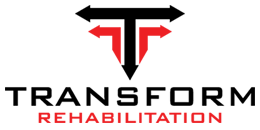Achilles Tendinitis
What is Achilles Tendinitis?
Achilles tendinitis is an irritation/inflammation in the Achilles tendon, which attaches to the back of the heel. It is often a result of overuse and occurs frequently in runners who have altered their training suddenly, either with regard to duration or intensity. This injury is also prevalent in middle-aged people who are active.
Common Symptoms of Achilles Tendinitis
People with Achilles tendinitis experience:
- Mild aching on the back of the leg close to the heel after increased activity
- Stiffness in the back of the ankle when first waking in the morning, which subsides after mild activity
- In some cases, the area may have swelling, thickening or be warm to the touch
- Tenderness to touch along the tendon in the back of the ankle
- Pain when the tendon is stretched (i.e. when you lift your foot/toes up)
- Problems walking normally
How We Treat Achilles Tendinitis
In order to treat Achilles tendinitis effectively, it is important to complete a thorough examination of the entire lower extremity. Once the true cause is identified, a comprehensive treatment program can be initiated to reduce inflammation and improve any faulty lower extremity biomechanics.
Treatment options may include:
- Biomechanical analysis of gait
- Splinting/bracing to alleviate the strain on the tendon
- Soft tissue mobilization/manual therapy to decrease inflammation and promote healing of the tendon
- Strengthening/flexibility and proprioceptive exercises
- Home exercise program
- Modalities for pain and inflammation (i.e. ultrasound, iontophoresis, electrical stimulation, ice)
- Methods to alter faulty mechanics (i.e taping, orthotics)
- Education about lifestyle changes (i.e. proper shoes, activity modification)
*Services are not available at all locations. Call or click the location page near you for that center’s services.
What to Expect
Every patient has a unique health history, diagnosis and personal goals. When you come for your first appointment, we will create a personalized treatment plan for you.
We work with most major insurance providers and do our best to help keep the paperwork pain-free. If you’d like to confirm your insurance coverage, please let us know and we can verify when you schedule. If your insurance provider requires a co-pay, we will ask for this payment at each visit. We accept payments by cash, check or credit card.
When to Arrive
On average, a patient’s first visit lasts about an hour. We typically ask patients to arrive 15 minutes early to sign-in, complete paperwork and/or change clothes.
What to Bring
On your first visit, you’ll need to bring your physician referral or prescription (if needed), your insurance card, your primary registration forms, your ID or driver’s license and your co-payment (as applicable). If desired, you may bring a change of clothing.
How it Works
During your first visit, your physical therapist will do an initial evaluation and discuss your plan of care. The therapist uses this information to set goals for your continued treatment. Physical therapy goals may include improved movement, strength, endurance and flexibility, as well as decreased pain. Your subsequent visits will focus on treatment that is based on your diagnosis and individualized goals.
